Most FMCG teams still obsess over their average star rating, but what if that number isn’t doing the heavy lifting? Independent business school research and our research data show that shoppers don’t buy based on ratingsalone – it’s what the reviews actually say that makes the sale. If your top reviews are old or unfair, you’re losing customers even with a 4.5-star average.
In this article, we break down why review sentiment matters more than stars and how brands can use this fact to drive measurable sales uplift.
This article was originally inspired by: HU, Nan; KOH, Noi Sian; and REDDY, Srinivas K. Ratings Lead You to the Product, Reviews Help You Clinch It? The Dynamics and Impact of Online Review Sentiments on Product Sales. Singapore University.
Read More
Topics:
Grocery,
FMCG,
marketing,
Rating and Reviews,
Always On
Every Quarter, we analyse the Top 150 UK FMCG manufacturers and their online reputation in supermarkets. Our key reputation KPI is the percentage of SKUs that need new reviews. The fewer the number, the better the manufacturer is managing its reputation.
Based on our research and that of business school professors in the US, the three key measures that go into whether a SKU Needs new reviews are:
- Minimum of 30 reviews: This involves checking if the SKU has at least 30 reviews in that retailer. If it does, we move on to section 2. If not, it requires new reviews.
- Top 3 Fresh: Looking at the latest three reviews on the retailer's website, e.g., Tesco.com, which is displayed as the newest first, are any more than six months old? If yes, it needs new reviews; if not, go to 3.
- Top 3 Fair: Look at the latest three reviews and their ratings out of 5. Are any of these more than 1.5 Stars different from (above or below) the average rating for the SKU in that retailer? If yes, then it needs new reviews. If "No," then this SKU in this retailer is optimised right now.
We check this data daily in every retailer and automatically get new reviews from 100% verified shoppers until they are no longer required. Working with our clients, we know that this kind of Always On program provides an exceptional ROI return of between 6 and 12 at a gross margin level.
That's £6 - £12 back for every £1 you spend on the program. Where else can you get that kind of return on your spending?
the medalists
Where did you finish?
Read More
Topics:
Online,
Rating and Reviews,
digital shelf,
Insights,
ROI
In the UK grocery market, own-brand products have transitioned over the last 100 years from mere cheaper alternatives to branded goods to becoming central pillars of supermarket strategies. With private-label sales growing at double the rate of branded goods in 2023, retailers are increasingly focusing on enhancing their own-label offerings. Amidst this evolution, one potent yet often underutilised tool stands out: the strategic use of product reviews.
Read More
Topics:
Supermarket,
Grocery,
FMCG,
Rating and Reviews,
Always On,
Own Label
Every Quarter, we analyse the Top 150 UK FMCG manufacturers and their online reputation in supermarkets. Our key reputation KPI is the percentage of SKUs that need new reviews. The fewer the number, the better the manufacturer is managing its reputation.
Based on our research and that of some business school professors in the US, the three key measures that go into whether a SKU Needs new reviews are:
- Minimum of 30 reviews: This involves checking if the SKU has at least 30 reviews in that retailer. If it does, we move on to section 2. If not, it requires new reviews.
- Top 3 Fresh: Looking at the latest three reviews on the retailer's website, e.g., Tesco.com, which is displayed as the newest first, are any more than six months old? If yes, it needs new reviews; if not, go to 3.
- Top 3 Fair: Look at the latest three reviews and their ratings out of 5. Are any of these more than 1.5 Stars different from (above or below) the average rating for the SKU in that retailer? If yes, then it needs new reviews. If "No," then this SKU in this retailer is optimised right now.
We check this data daily in every retailer and automatically get new reviews from 100% verified shoppers until they are no longer required. Working with our clients, we know that this kind of Always On program provides an exceptional ROI return of between 6 and 12 at a gross margin level.
That's £6 - £12 back for every £1 you spend on the program. Where else can you get that kind of return on your spending?
the medalists
Where did you finish?
Read More
Topics:
Online,
Rating and Reviews,
digital shelf,
Insights,
ROI
Product reviews are a hot topic in FMCG and eCommerce, but we regularly hear feedback from some that just don’t stack up against the data. Whether it’s scepticism about their impact on sales or outdated beliefs about how shoppers engage with reviews, these misconceptions can hold brands back. We will cover:
- The impact of product reviews on sales is minimal
Based on case study data, we’ll show how reviews drive long-term sales growth.
- Reviews only matter to online shoppers
In-store shoppers use reviews too—66% check them before purchasing.
- If my product is good, I can ignore negative reviews
A product with an average rating below 4.0 is losing trust and sales—here’s why.
- Product reviews are just for retailer websites
Smart brands use advertising, packaging, and in-store reviews to boost conversions.
- Reviews don’t matter for own-label products
The gap between branded and own-label reviews is growing—own-label needs to catch up.
Now, let’s examine myth and reveal the truth about the power of product reviews.
Read More
Topics:
Grocery,
FMCG,
Rating and Reviews,
digital shelf,
Insights,
Always On
Every Quarter, we analyse the Top 150 UK FMCG manufacturers and their online reputation in supermarkets. Our key reputation KPI is the percentage of SKUs that need new reviews. The fewer the number, the better the manufacturer is managing its reputation.
Based on our research and that of some business school professors in the US, the three key measures that go into whether a SKU Needs new reviews are:
- Minimum of 30 reviews: This involves checking if the SKU has at least 30 reviews in that retailer. If it does, we move on to section 2. If not, it requires new reviews.
- Top 3 Fresh: Looking at the latest three reviews on the retailer's website, e.g., Tesco.com, which is displayed as the newest first, are any more than six months old? If yes, it needs new reviews; if not, go to 3.
- Top 3 Fair: Look at the latest three reviews and their ratings out of 5. Are any of these more than 1.5 Stars different from (above or below) the average rating for the SKU in that retailer? If yes, then it needs new reviews. If "No," then this SKU in this retailer is optimised right now.
We check this data daily in every retailer and automatically get new reviews from 100% verified shoppers until they are no longer required. Working with our clients, we know that this kind of Always On program provides an exceptional ROI return of between 6 and 12 at a gross margin level.
That's £6 - £12 back for every £1 you spend on the program. Where else can you get that kind of return on your spending?
the medalists
Where did you finish?
Read More
Topics:
Online,
Rating and Reviews,
digital shelf,
Insights,
ROI
Introduction
In the fiercely competitive beverage industry, standing out on the shelf involves more than just striking designs and impactful displays. Today's consumers seek authenticity and trustworthiness in the brands they select. This is where genuine customer reviews become crucial, significantly swaying purchasing decisions.
Recognising this trend, Heineken launched an innovative campaign for Inch’s Cider, utilising CheckoutSmart’s SmartReputation program to tap into the power of genuine customer feedback. This case study delves into how CheckoutSmart assisted Heineken in transforming ordinary customer reviews into a compelling shopper marketing program, enhancing the brand's reputation and influencing buyer behaviour across Tesco and Sainsbury's.
Images from Heineken materials
Read More
Topics:
Grocery,
marketing,
Rating and Reviews,
NPD,
Shopper Marketing
Every Quarter, we analyse the Top 150 UK FMCG manufacturers and their online reputation in supermarkets. Our key reputation KPI is the percentage of SKUs that need new reviews. The fewer the number, the better the manufacturer is managing its reputation.
Based on our research and that of some business school professors in the US, the three key measures that go into whether a SKU Needs new reviews are:
- Minimum of 30 reviews: This involves checking if the SKU has at least 30 reviews in that retailer. If it does, we move on to section 2. If not, it requires new reviews.
- Top 3 Fresh: Looking at the latest three reviews on the retailer's website, e.g., Tesco.com, which is displayed as the newest first, are any more than six months old? If yes, it needs new reviews; if not, go to 3.
- Top 3 Fair: Look at the latest three reviews and their ratings out of 5. Are any of these more than 1.5 Stars different from (above or below) the average rating for the SKU in that retailer? If yes, then it needs new reviews. If "No," then this SKU in this retailer is optimised right now.
We check this data daily in every retailer and automatically get new reviews from 100% verified shoppers until they are no longer required. Working with our clients, we know that this kind of Alway On program provides an exceptional ROI return of between 6 and 12 at a gross margin level.
That's £6 - £12 back for every £1 you spend on the program. Where else can you get that kind of return on your spending?
the medalists
Where did you finish?
Read More
Topics:
Online,
Rating and Reviews,
digital shelf,
Insights,
ROI
Product reviews play a significant role in helping potential customers make informed decisions about purchasing a product or service. In the UK, specific laws and legislation regulate product reviews and testimonials. Businesses must understand and comply with these laws to avoid legal consequences and maintain customers' trust in reviews and review sites:
-
Prohibition of Fake Reviews: Under UK law, businesses are prohibited from pretending to be customers and writing reviews about their products or other businesses' products. Commissioning third parties to write fake reviews is also considered illegal, and businesses may be liable for their actions.
-
Transparency and Inducements: Offering inducements, such as money or gifts, to customers in exchange for positive reviews is against the law. Review transparency is essential, and any payments provided for reviews must be disclosed to the reader to ensure they are aware of potential bias.
-
Compliance Requirements: Businesses should not pretend to be customers and write reviews, commission third parties for fake reviews, or offer inducements for positive reviews. Businesses can maintain consumer trust and contribute to a fair and transparent online marketplaceby complying with these requirements.
See the full article for more, including the vital Do's and Don'ts:
NB This article has been written with best efforts based on current (16/07/24) publically available information. It is not intended as legal advice or to be relied upon in any way. For advice or questions, consult a specialist lawyer.
Read More
Topics:
Grocery,
FMCG,
Rating and Reviews
The recent meteoric rise of artificial intelligence (AI) models is revolutionising how we interact with computers and access information online. But has AI made a significant difference in ratings and reviews, and is it what shoppers want?
Amazon has rolled out generative AI to create succinct product-level summaries of reviews for many of its products to support shoppers' decision-making process. Several clients have asked us to explore how this has impacted a shopper’s experience when using Amazon and understand how these features are perceived compared to ‘traditional’ ratings and reviews.
To do this, we created a study to research how regular Amazon shoppers use the site. The study simulates the shopping process for a selection of grocery category products.
We received over 2500 responses, and our key findings challenge the notion that AI automatically benefits users.
The 4 key takeaways are:
- Individual Ratings and reviews are as important as ever
- Shoppers don't hang around when shopping for groceries on Amazon
- Amazon's AI features are hardly used or even noticed
- There is little evidence of AI improving the shopping experience, but the generations split opinion
Read More
Topics:
Grocery,
FMCG,
Rating and Reviews,
ecommerce,
CPG,
Shopper Insights,
Amazon,
Insights
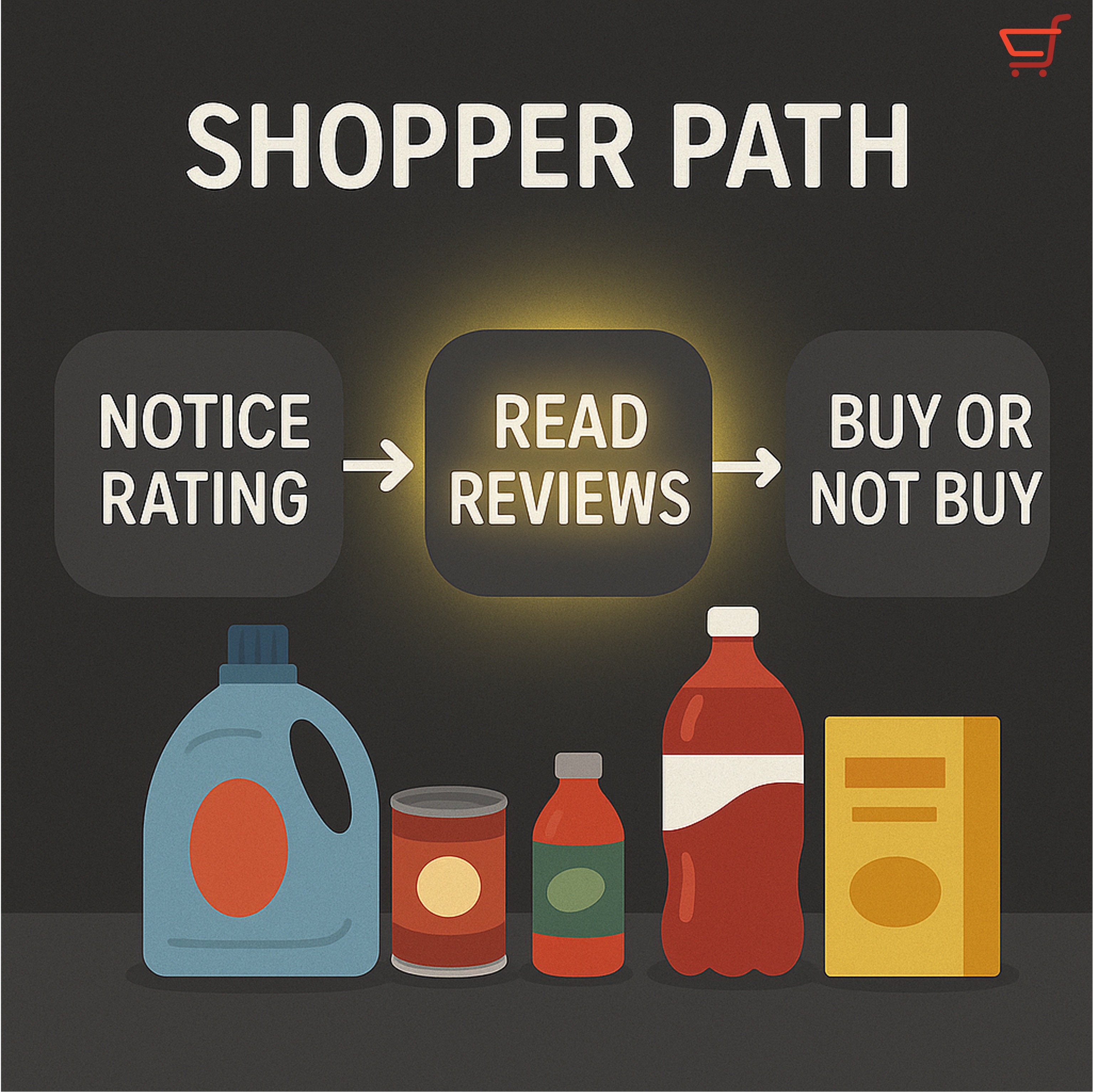
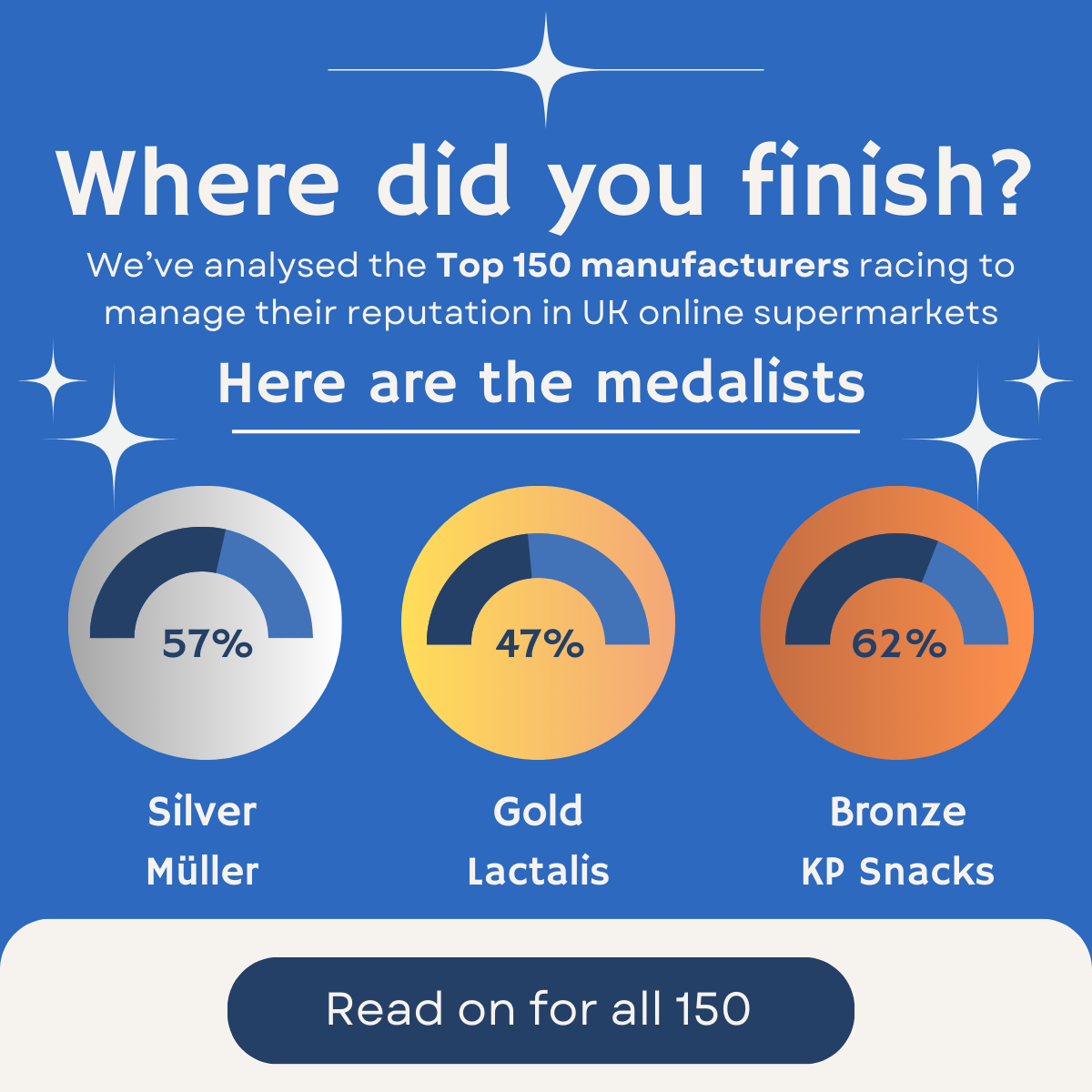
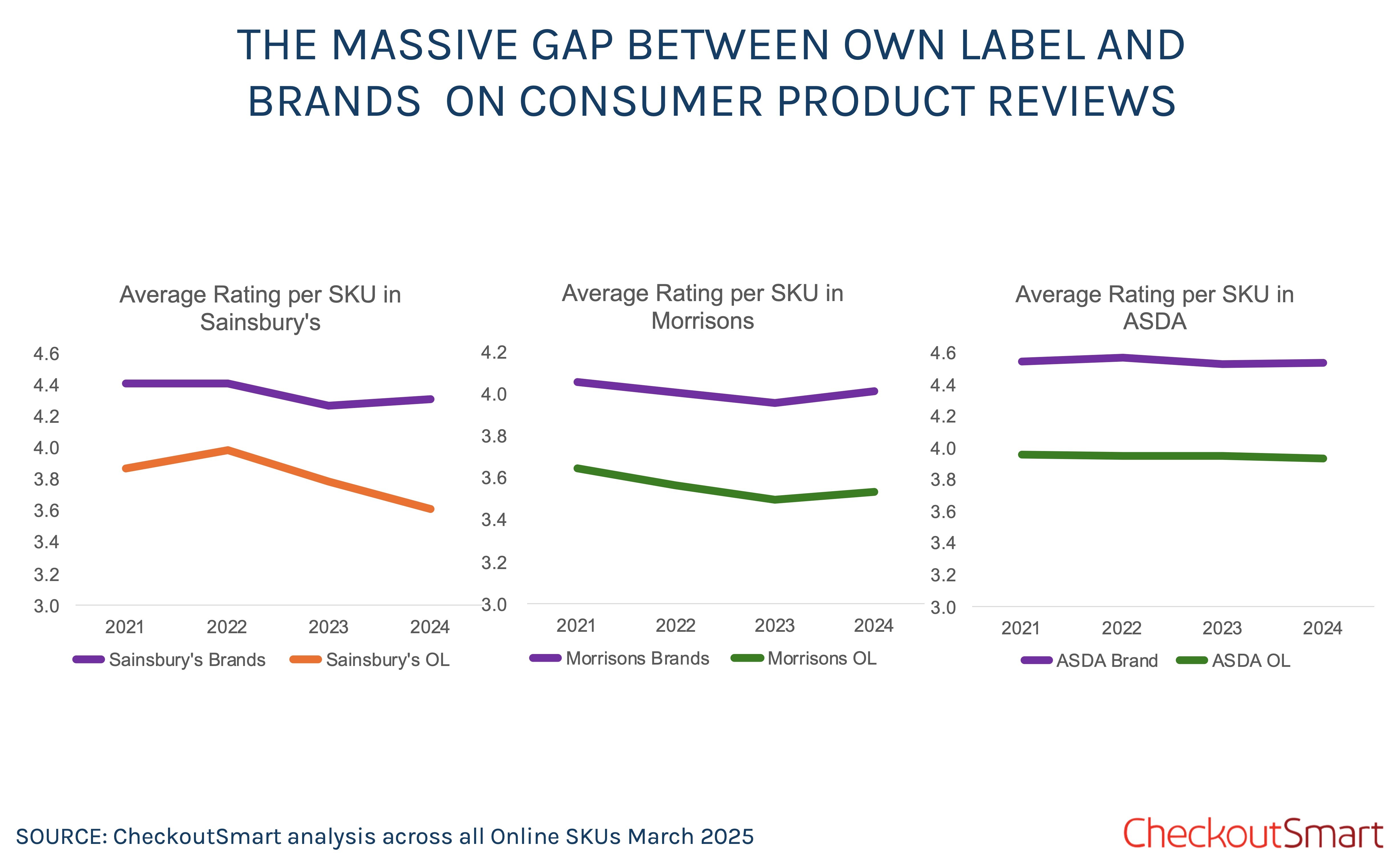
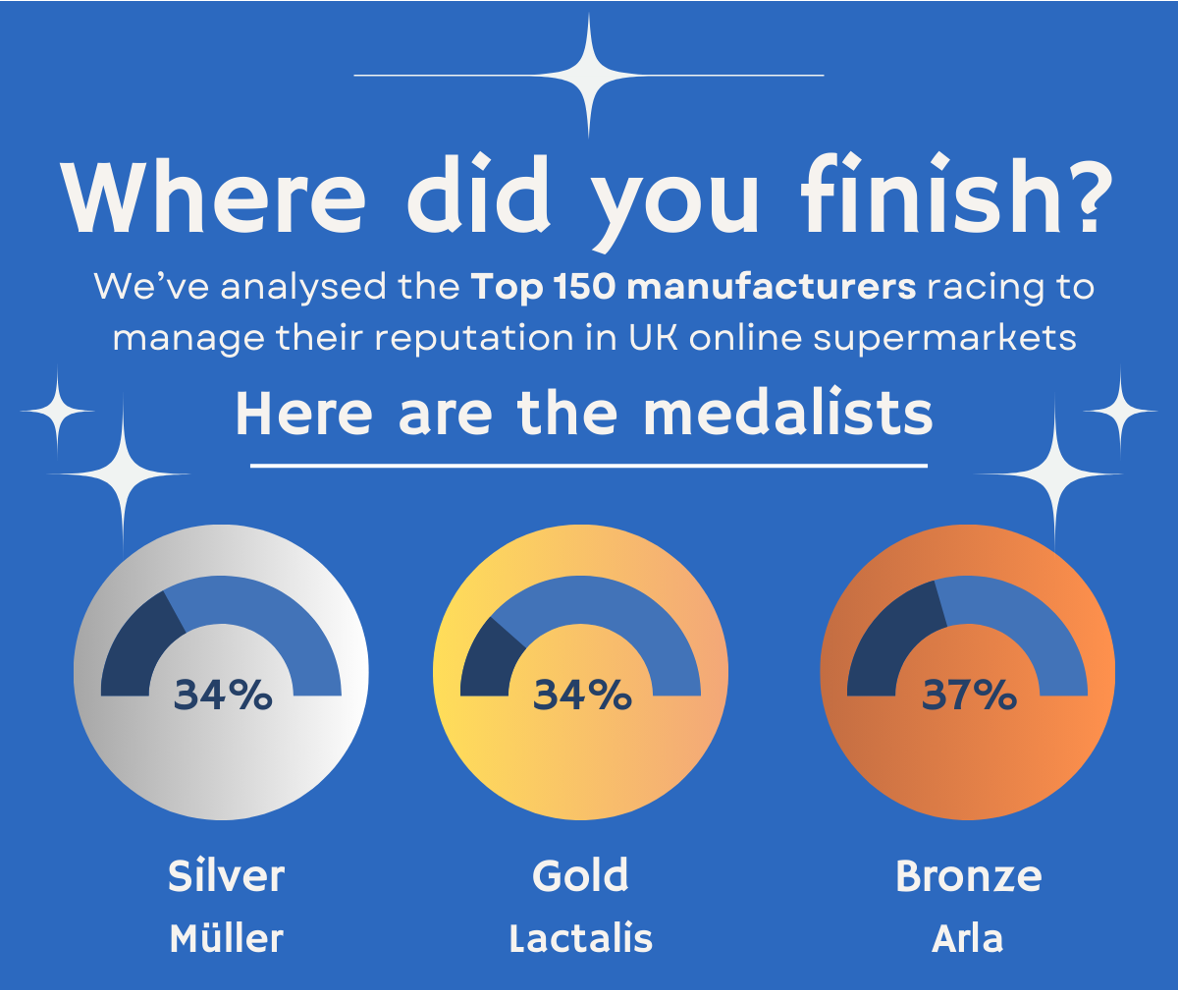
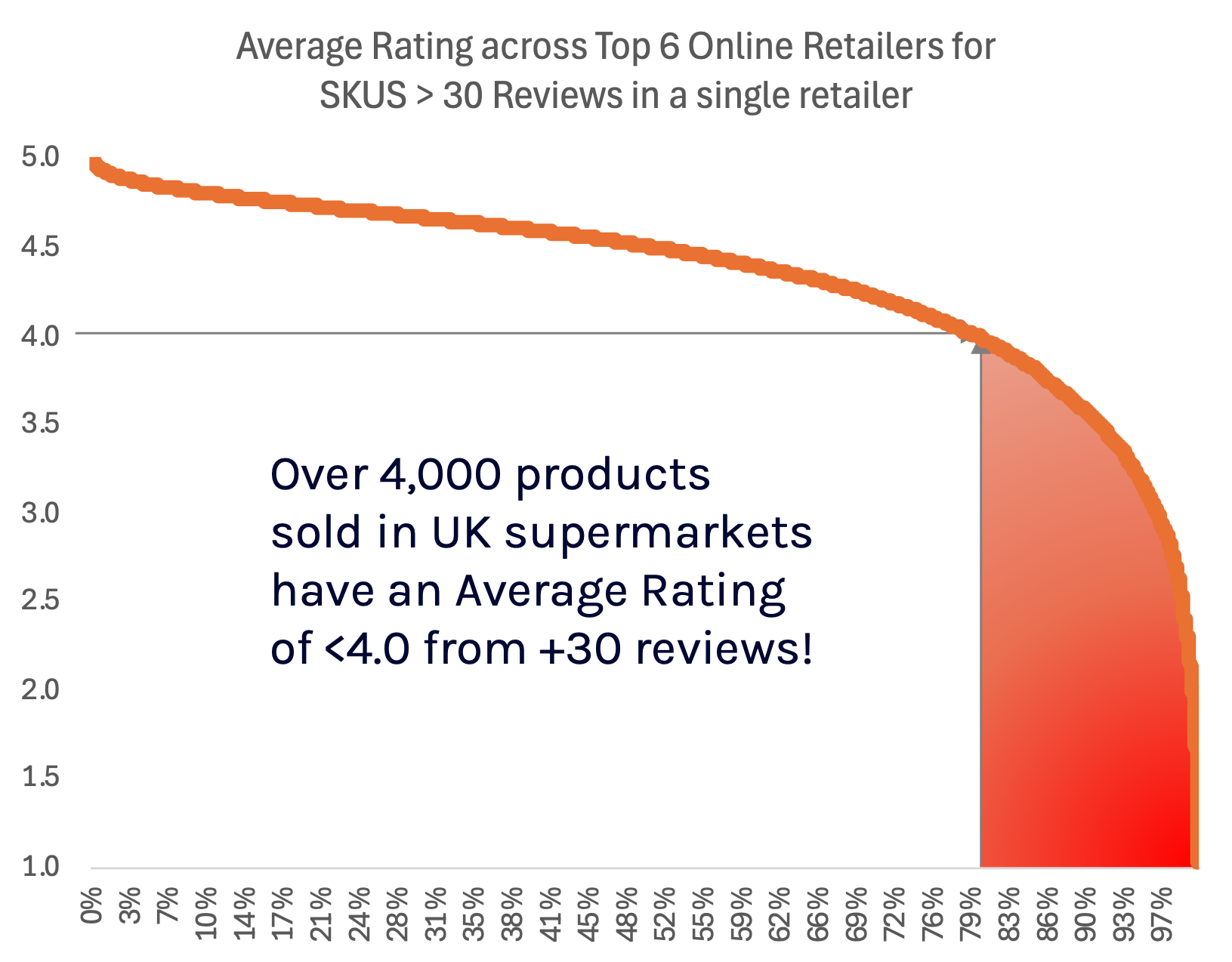
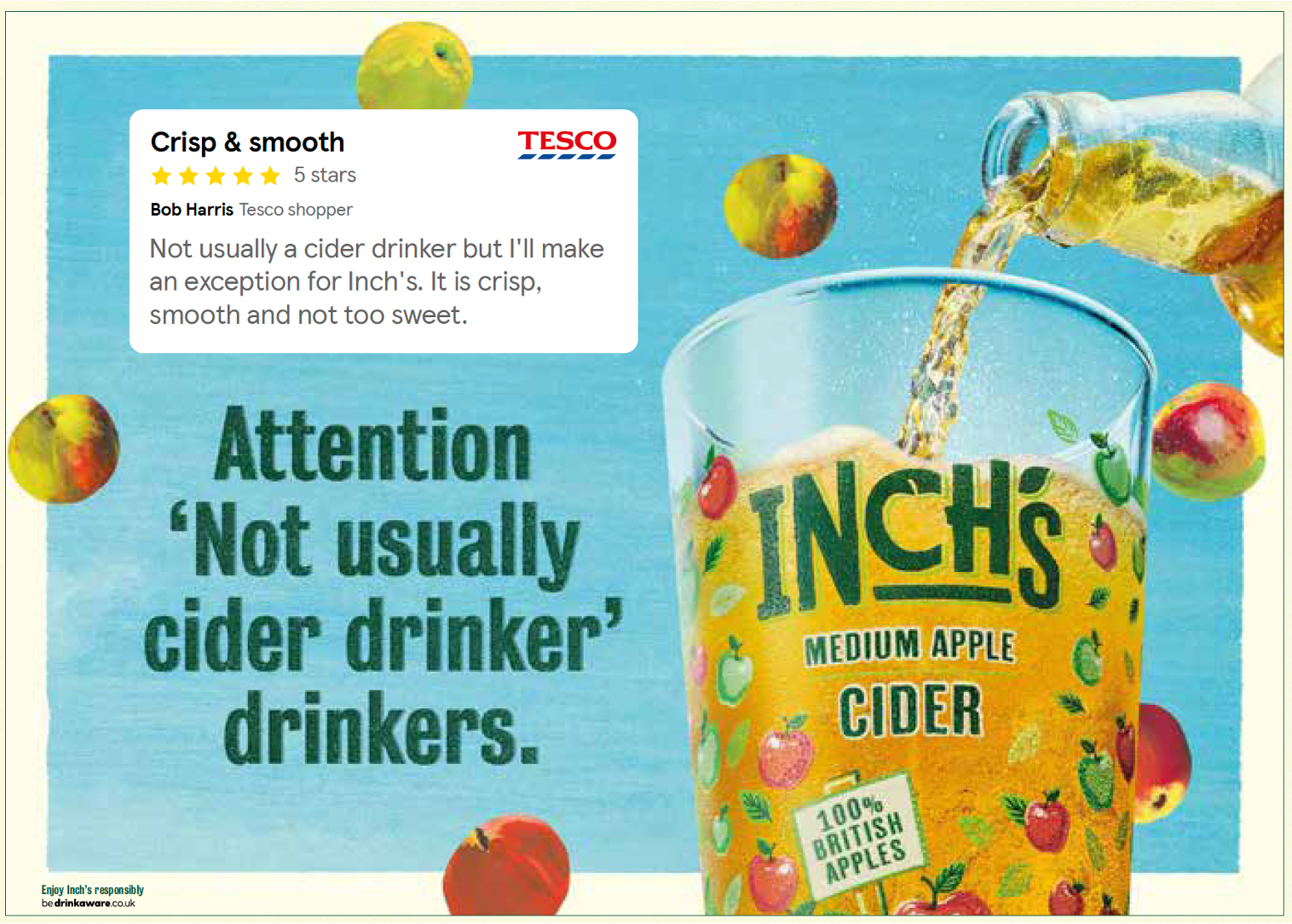
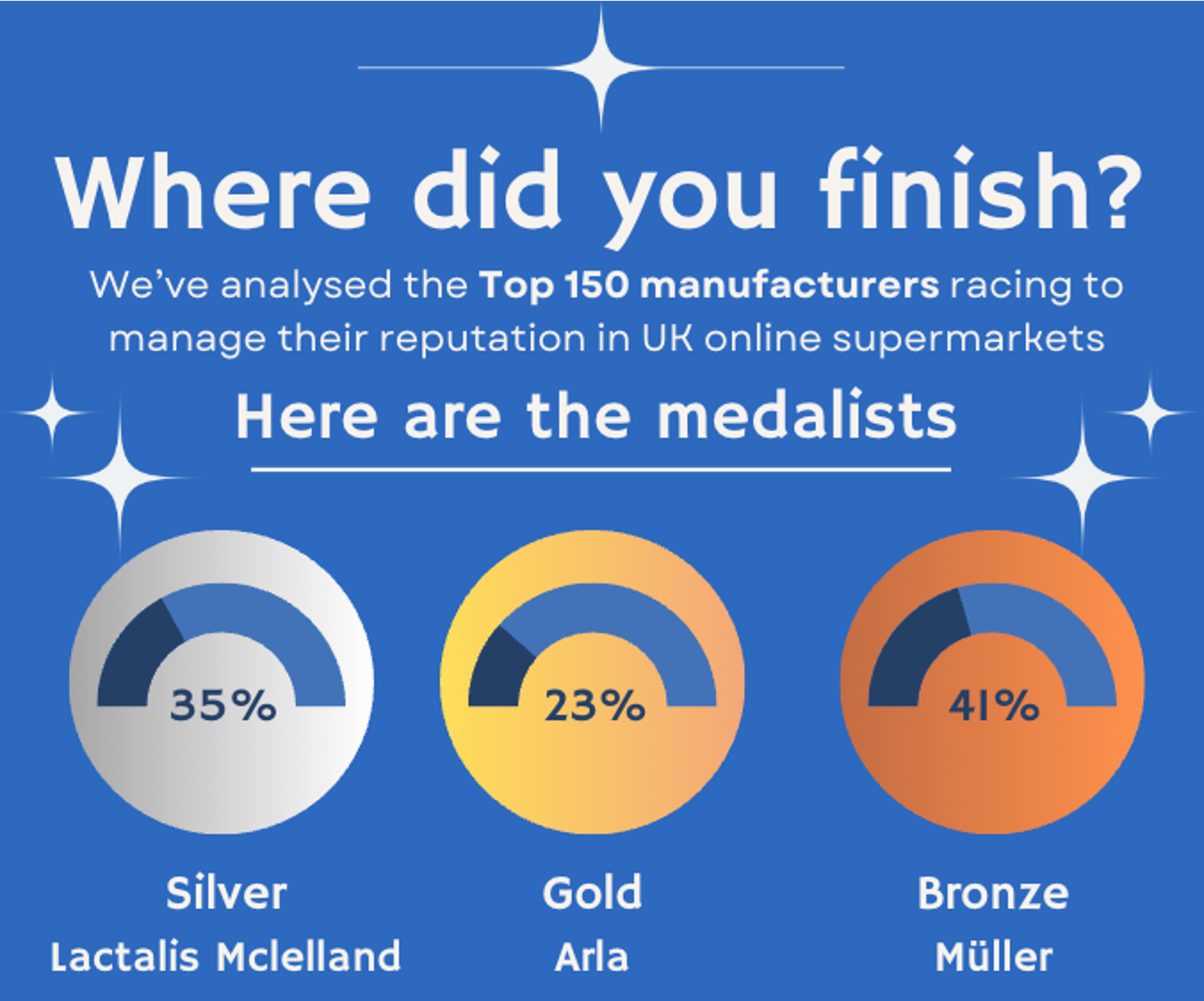
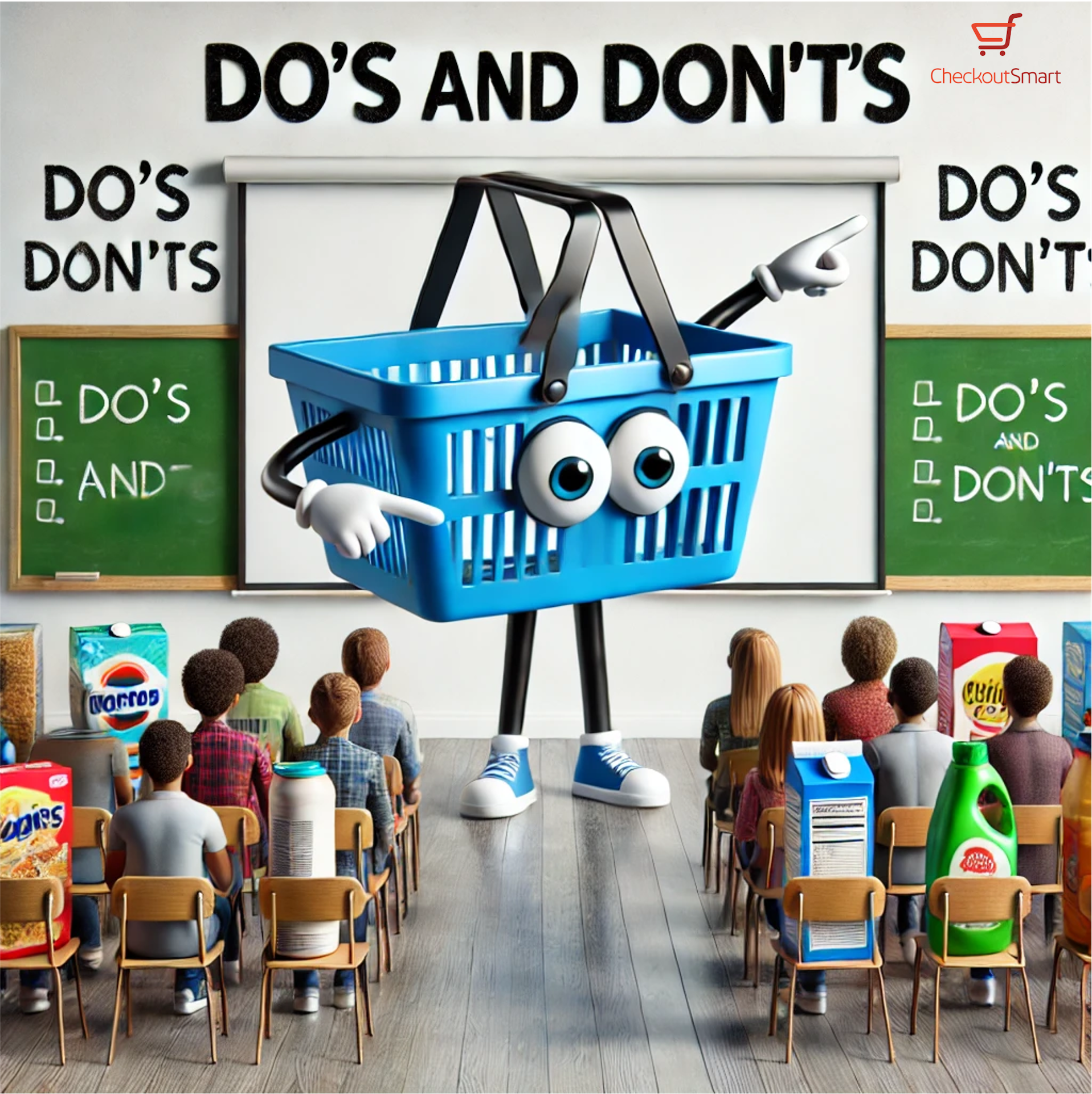


 fans 15,785
fans 15,785
 followers 4,312
followers 4,312